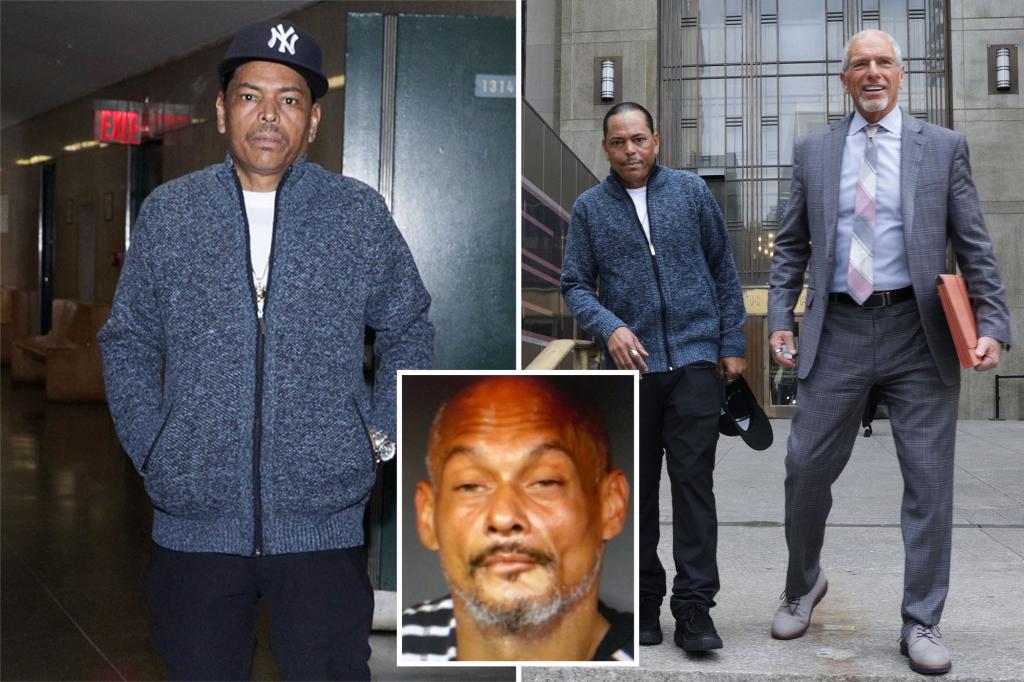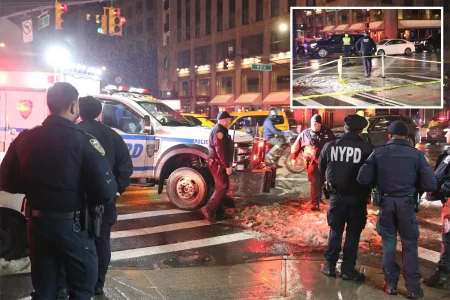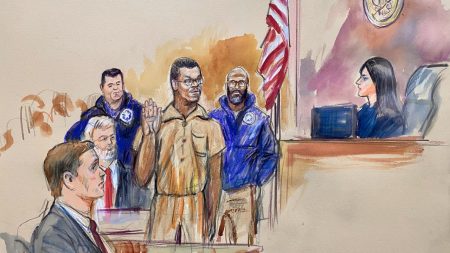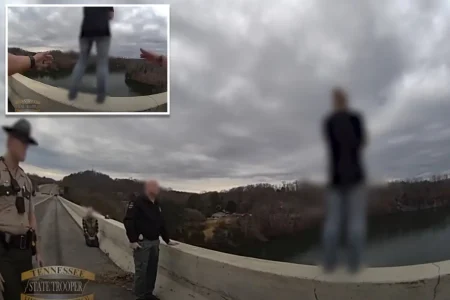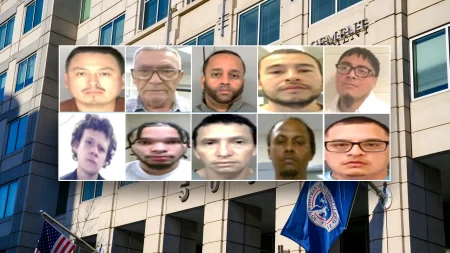A Fresh Start: Shelf Stocker’s Legal Ordeal Comes to an End
In a significant turn of events, Scotty Enoe, a 48-year-old shelf stocker who was previously accused in a fatal CVS stabbing, has been completely cleared of all charges. “I’m officially a free man right now,” Enoe said with a smile after his final weapons charge was dismissed in Manhattan Supreme Court. This dismissal marks the end of a challenging legal journey that began in July 2023 when Enoe, while working at a Midtown CVS on Broadway and West 49th Street, fatally stabbed Charles Brito during a confrontation. The case had drawn attention not only for its dramatic circumstances but also for what some saw as an example of overcharging by the Manhattan District Attorney’s Office. The dismissal now allows Enoe, a Grenada-born lawful permanent resident, to move forward with his life without the threat of deportation that had been hanging over him.
The resolution of Enoe’s case reflects the complexities of self-defense claims in retail environments, where employees increasingly find themselves confronting shoplifters and potentially volatile situations. During his trial in July, Enoe testified that he had acted purely in self-defense against Brito, whom he described as a “crazy” thief who had repeatedly punched him and threatened his coworkers. The jury evidently found this account compelling, taking just twenty minutes to acquit him of manslaughter charges that could have resulted in up to 25 years in prison. However, they did initially convict him on a lesser charge of criminal possession of a weapon in the fourth degree for having brass knuckles in his pocket—despite the fact that he never used these brass knuckles during the altercation that led to Brito’s death.
The final dismissal came when the Manhattan District Attorney’s Office agreed to drop the remaining weapons charge, a decision that Judge Curtis Farber formally approved during Friday’s hearing. “There is no reason to believe that Mr. Enoe is a danger to society,” Judge Farber stated before wishing Enoe luck in his future endeavors. This outcome was particularly crucial for Enoe’s immigration status, as even a misdemeanor conviction could have potentially led to the revocation of his green card and subsequent deportation. His attorney, Frank Rothman, expressed relief at the prosecution’s decision, though not without criticism of how long the process had taken: “It took them long enough, but I’m relieved that they finally did the right thing.”
The case highlights the precarious position many retail workers find themselves in when confronting shoplifters, a growing concern in urban centers where theft has become increasingly brazen. For Enoe, who had never been arrested before this incident, the accusation led to real consequences even before his acquittal. He spent a week in Rikers Island following his arrest before being released on $100,000 bail—a sum his employers at Big Geyser, a beverage distributor, helped pay. After his release, he lived under strict conditions, including wearing an ankle bracelet and observing a nightly curfew, restrictions that have now been lifted with the complete dismissal of his case.
Now fully cleared, Enoe plans to return to his previous life, working six days a week stocking shelves for Big Geyser. His straightforward statement to The Post reflects a desire to move beyond the trauma of his legal ordeal: “I’m just trying to live my life. I’m not looking for trouble.” This sentiment underscores the profound impact that criminal accusations can have, even when they ultimately result in acquittal. For nearly a year, Enoe’s life was disrupted by legal proceedings, public scrutiny, and the constant threat of imprisonment or deportation—all stemming from what a jury quickly determined was an act of self-defense.
The resolution of Enoe’s case also comes amid ongoing debates about criminal justice reform and prosecutorial discretion in New York City. After his acquittal in July, both Enoe and his attorney publicly criticized Manhattan District Attorney Alvin Bragg for bringing the case forward at all, suggesting that the charges were excessive given the circumstances. Critics of Bragg’s office have pointed to cases like Enoe’s as examples of misplaced prosecutorial priorities, while supporters maintain that thorough investigation of all homicides, regardless of claimed justification, remains essential. Regardless of where one stands in this debate, Enoe’s case serves as a reminder of the human stakes in criminal proceedings—and the relief that comes when individuals can finally put such ordeals behind them and return to normal life. As Enoe walks away a free man, his experience stands as both a cautionary tale about the dangers retail workers may face and an affirmation of the principle that self-defense remains a valid legal defense in American jurisprudence.




